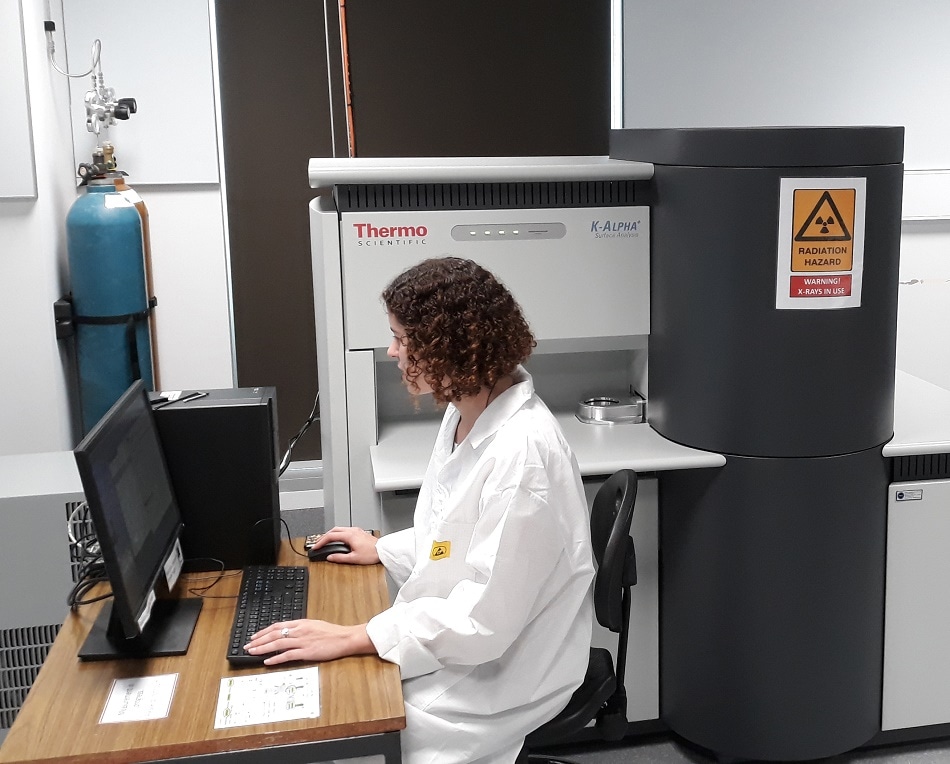The University of Sydney has recently enhanced their surface science capabilities with the installation of a Thermo Scientific KAlpha+ X-ray Photoelectron Spectrometer (XPS). The system supplied by AXT Pty Ltd, Thermo Scientific’s distributor was installed at Sydney Analytical, one of the university’s Core Research Facilities.
 The Thermo Scientific KAlpha+ XPS system installed at Sydney Analytical.
The Thermo Scientific KAlpha+ XPS system installed at Sydney Analytical.
The KAlpha+ is a compact XPS system that puts state-of-the-art measurement within the reach of more researchers through its ease-of-use. It is ideal for a multi-user facility, like Sydney Analytical, that caters for users with varying degrees of expertise and reduces pressure on facility managers.
The KAlpha+ offers users of all levels improved spectroscopic performance, faster analysis times, improved elemental detection and the ability to acquire data at higher resolution. Furthermore, with the addition of the MAGCIS ion source, researchers will also be able to perform depth profiling experiments that will allow them to see how composition changes beneath the surface which will be of great value to those working with thin coatings and functionally graded materials.
According to Dr Michelle Wood, Senior Technical Officer in charge of the KAlpha+, “the XPS is quickly becoming one of our most actively used instruments, with various users commenting on both the quality of the data compared to other XPS instruments they have used as well as how user friendly the operation and software is.” Sydney Analyical currently have around 20 users who already use the instrument constantly, with more operators expected to be trained shortly.
One area of research that has found XPS to be extremely useful is characterising the surface of biocompatible nanoparticles. Dr. Gurvinder Singh and Prof. Hala Zreiqat have been engineering the surface of nanoparticles aimed at diagnosing and treating cancers and other life-threatening diseases. XPS provides data to optimise the surface chemistry to increase the biocompatibility and functionality of the particles, as well as allowing researchers to understand biomolecular adsorption behaviour.
The areas of research that are utilising XPS are many and varied. Some examples include drug discovery, Metal-Organic Frameworks (MOFs), carbon and metal oxide nanoparticles for separation processes, catalysis, biomedical coatings and battery materials.
Prof. Peter Lay, Academic Director at Sydney Analytical said of the acquisition, “Sydney Analytical wanted a high-end instrument with multiple capabilities that was also user friendly in both data collection and analysis and the K alpha ticked all of these criteria. We are delighted that the K alpha has lived up to our expectations and has been embraced enthusiastically by our users.” Sydney Analytical would like to acknowledge the University of Sydney Core Research Facilities program for providing funding to purchase of the KAlpha+.